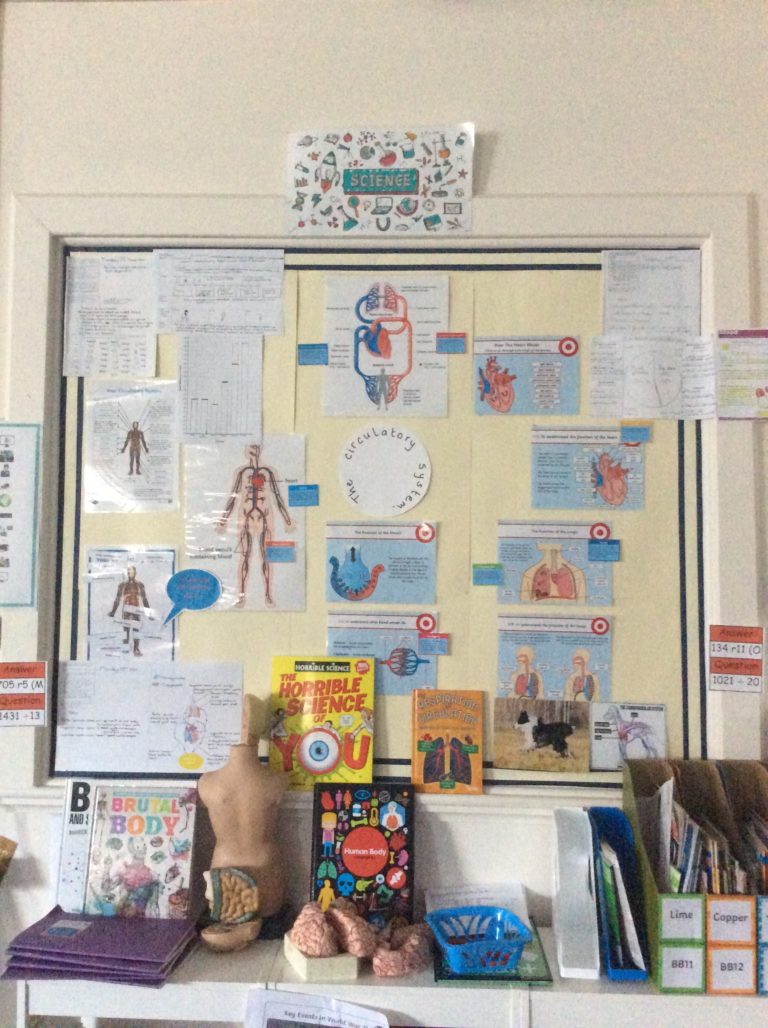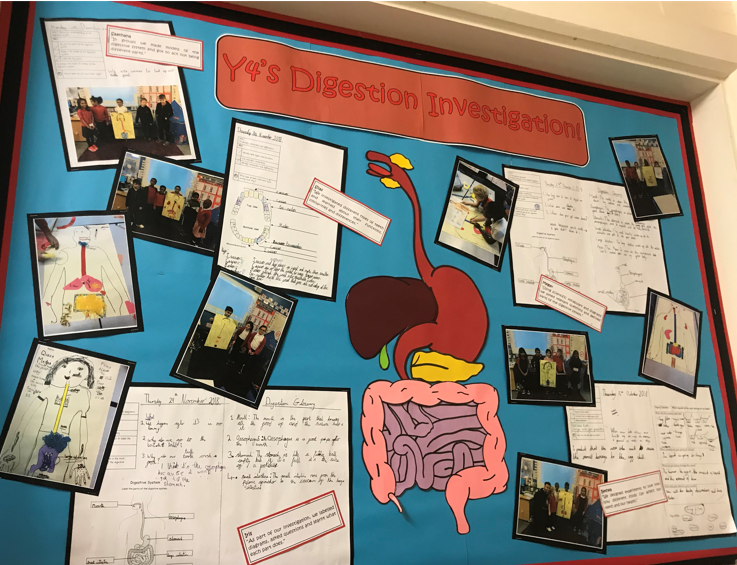SCIENCE

INTENT - OUR VISION FOR SCIENCE
At the beginning of each topic we recap the curriculum and the skills and knowledge they have previously learnt to ensure that pupils have a secure foundation of knowledge and skills to build upon thus not leaving any gaps in knowledge.
Throughout the science curriculum we have an emphasis on reading to support this there are always books available liked to the current topic for the children to read. These books are accessed at any time in the day.
Assessment is carried out at the beginning and end of every topic. Children are asked to complete a mind map with everything that they already know about the topic previous to starting it. They are encouraged to draw diagrams and pictures and use any key vocabulary which they know. This gives the teacher a starting point so they know if there are gaps which need to be filled. After the topic is complete the children then complete another mind map with all the new knowledge which they have acquired.
WHY SCIENCE IS IMPORTANT?

IMPLEMENTATION – SCIENCE PLANNING & SEQUENCING OF KNOWLEDGE & SKILLS
To find out how SCIENCE is planned & sequenced in order that our children can progress through the building blocks for learning, please click below
Science policy under review Sept 23
We follow the National Curriculum for science. Detailed medium term plans have been specifically written to support the implementation of the long term plan and to ensure essential knowledge is being taught in a sequence of lessons with each lesson building upon knowledge from the last. Having a carefully written plan also ensures a good balance and breadth of teaching for acquiring scientific knowledge and for developing working scientifically skills through the five enquiry types.
All aspects of the curriculum are covered by the end of the topic; however, there is flexibility in how lessons are taught. This can either be on a weekly basis or if more appropriate in a block of lessons to help with continuity.
Where possible, we use cross curricular links including Geography and computing. On the medium term plan there are details of how each year group is expected to record their data and findings from investigations. This is linked to the National Curriculum for Math as children will use the same ways to record as they do in the statistics unit in Math.
Each lesson has a focus on two areas; the scientific knowledge and the working scientifically skill. Each lesson is designed and planned so that knowledge will be transferred into the long- term memory and therefore children will be able to build on this knowledge when they are next exposed to the scientific topic.
As pupils will be exposed to new phenomena and vocabulary it is essential that pupils are pre taught vocabulary so that they can use this as a basis of using the vocabulary in context. Knowledge organisers are used as a tool for pre teaching vocabulary and at the beginning of each lesson to recap knowledge which has been taught in previous lessons so that they can address gaps in knowledge if necessary.
In each classroom there is a science display which is relevant to the current topic, alongside this there are posters which show the five types of enquiry with the aim of pupils being familiar with these, understanding what enquiry type they are using that lesson and in year 5 and 6 being able to choose which type of enquiry they would like to use.
NATIONAL CURRICULUM PURPOSE OF STUDY
IMPACT OF OUR SCIENCE CURRICULUM
At Porter Croft, through our curriculum progression, well thought out and sequenced lessons and planned repetition children should leave each year group with a good understanding of both the scientific skills and knowledge.
Children will transfer what they learnt in previous year groups in a topic into the next ear group where they revisit it. This will be evident on the mind maps used at the beginning and end of a topic. Children will also develop their working scientifically skills as they move through the three key stages. This will be evident with how they record investigations and data in their books and the vocabulary which they use linked to the 5 types of enquiry and the working scientifically statements from the National Curriculum.
Books reflect a wide range of skills used and that all the knowledge from that topic has been covered.
Evidence from book scrutiny, book looks, working walls, lesson study, staff meetings, lesson observations, planning documents and half termly test is used to access children’s knowledge and grasp of SCIENCE.
National data show that children at Porter Croft perform in line with or above National Expectations and that children with SEND or from a social disadvantage are achieving above National expectations

